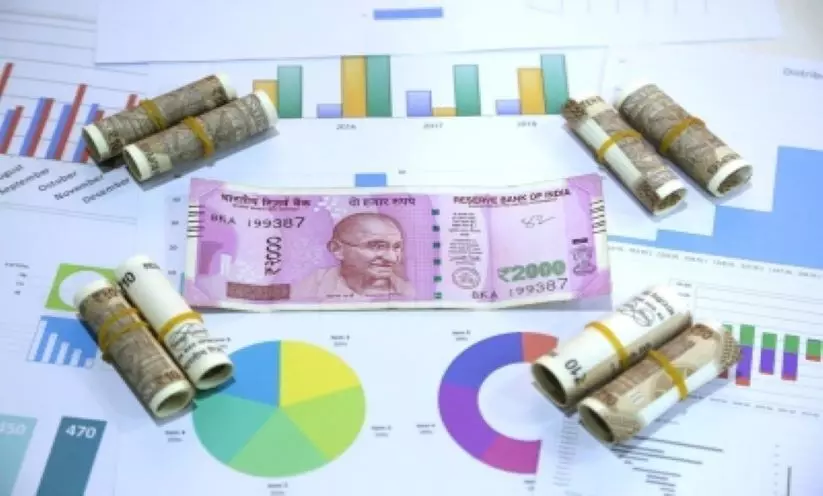
Indian household savings plunge amid the post pandemic 'revenge spending'
text_fieldsNew Delhi: Household savings which accounts for 60% of the country's total, plunge to a five year low in the last fiscal.
Compared to 15.9 per cent in 2020-21, the gross financial savings of households stood at 10.8 per cent in 2021-22. In the three previous fiscal years, it was 12 per cent.
During the Corona virus induced lockdowns people were forced to dig into their savings, as the pandemic also led to severe job losses and in the absence of steady incomes, savings were the last resort for people to run their households.
Though initially during the lockdowns, people saved their funds, keeping in mind the possibilities of having to spend on healthcare, once the restrictions eased, they went on a spending spree, what economists termed as "revenge spending".
This led to depletion of their savings and a situation arose when spendings exceeded income and there were cases when despite having no jobs, expenditures rose, and savings bore the brunt of this excess or revenge spending, economists explained.
According to official data, household savings figures were down to 2.5 per cent of the GDP in 2021-22, while share of other savings avenues like insurance, provident fund and pension funds went up to 40 per cent of gross financial savings.
In 2021-22, shares and debentures' portion were also at a five-year high of 8.9 per cent, while the share of small savings hit a 16-year high of 13.3 per cent, according to reports.
According to a consultancy firm, high inflation has been the major reason behind fall in savings and in order to increase investments, savings need to be encouraged.
Lower domestic savings exposes borrowers to overseas markets, weakening India's external position and raising external debt.
India's savings rate had touched a 15-year-low as gross domestic savings stood at 30.9 per cent of GDP in FY20, down from a peak of 34.6 per cent in FY12.
Household savings fell from 23 per cent of GDP in 2012 to 18 per cent in 2019.
-IANS Inputs























